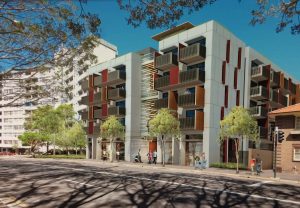The simplicity of Housing First
Housing First is based on the idea that people need a stable and secure home to end their homelessness before anything else, such as employment, community connections or better health care. A safe home is central to everyone’s lives. When someone has complex needs, they too need stable, affordable, permanent housing.
‘Housing First’ is based on a number of elements. These include:
Housing is provided as quickly as possible for people experiencing chronic long-term homelessness.
People do not have to be assessed as ‘housing ready’ which is a criterion regularly used that requires homeless people to first transition through a support service or temporary housing option and/or to undertake independent living skills training and assessment. Whilst this is a valuable objective of not setting people up to fail in their tenancies, it is not substantiated by evidence.
People are provided with adequate and appropriate support services in their home such as healthcare, training, employment opportunities and social inclusion. Whatever level of ongoing support needed, is provided.
People with alcohol or other drug addictions can access housing. Unlike Housing First, many other housing models require a transitional period in a care environment that may also require a period of abstinence from alcohol and/or other drugs. Most Housing First models do not require this and people will be able to access housing regardless of their substance use issues. Evidence shows that once people are in a stable housing situation they are in a better position to try and tackle their addictions.
Housing First is not Housing Only (that’s called Rapid Re-housing). Housing First simply ensures that people who have experienced long term homelessness are provided with housing. First. Some people will have serious and permanent support needs; others may just need permanent housing, but short term ‘transitional’ support as they move back into housing.
Some people may have no additional needs and just need housing. This approach is often called ‘Rapid Re-Housing‘ and it is more cost effective than crisis accommodation then transitional housing and followed eventually by permanent housing.


